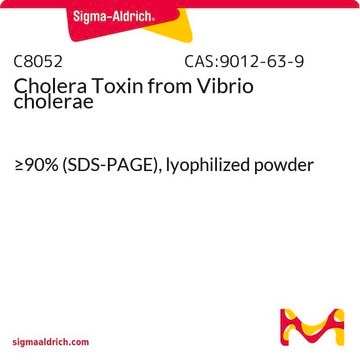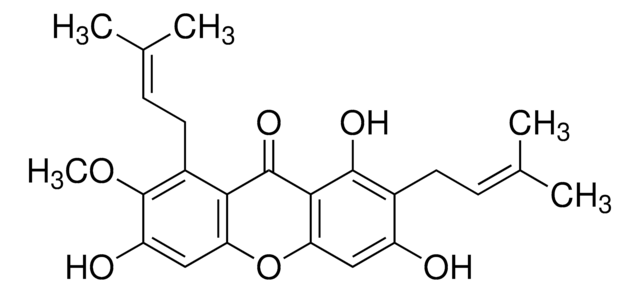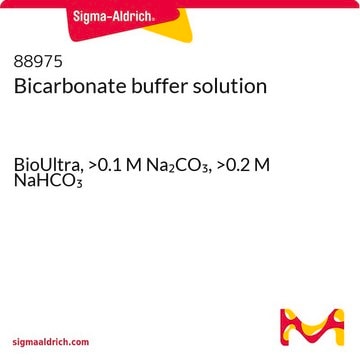D5817
DMXAA
≥98% (HPLC), solid, apoptosis inducer
Sinónimos:
5,6-Dimethylxanthenone-4-acetic Acid, ASA404, Vadimezan
About This Item
Productos recomendados
product name
DMXAA, ≥98% (HPLC), solid
Quality Level
assay
≥98% (HPLC)
form
solid
color
light brown
solubility
DMSO: soluble >10 mg/mL
storage temp.
2-8°C
SMILES string
Cc1ccc2C(=O)c3cccc(CC(O)=O)c3Oc2c1C
InChI
1S/C17H14O4/c1-9-6-7-13-15(20)12-5-3-4-11(8-14(18)19)17(12)21-16(13)10(9)2/h3-7H,8H2,1-2H3,(H,18,19)
InChI key
XGOYIMQSIKSOBS-UHFFFAOYSA-N
General description
Application
Biochem/physiol Actions
Features and Benefits
signalword
Warning
hcodes
Hazard Classifications
Acute Tox. 4 Oral - Aquatic Acute 1
Storage Class
11 - Combustible Solids
wgk_germany
WGK 3
flash_point_f
Not applicable
flash_point_c
Not applicable
ppe
dust mask type N95 (US), Eyeshields, Faceshields, Gloves
Certificados de análisis (COA)
Busque Certificados de análisis (COA) introduciendo el número de lote del producto. Los números de lote se encuentran en la etiqueta del producto después de las palabras «Lot» o «Batch»
¿Ya tiene este producto?
Encuentre la documentación para los productos que ha comprado recientemente en la Biblioteca de documentos.
Los clientes también vieron
Artículos
Cell cycle phases (G1, S, G2, M) regulate cell growth, DNA replication, and division in proliferating cells.
Cell cycle phases (G1, S, G2, M) regulate cell growth, DNA replication, and division in proliferating cells.
Cell cycle phases (G1, S, G2, M) regulate cell growth, DNA replication, and division in proliferating cells.
Cell cycle phases (G1, S, G2, M) regulate cell growth, DNA replication, and division in proliferating cells.
Nuestro equipo de científicos tiene experiencia en todas las áreas de investigación: Ciencias de la vida, Ciencia de los materiales, Síntesis química, Cromatografía, Analítica y muchas otras.
Póngase en contacto con el Servicio técnico

















